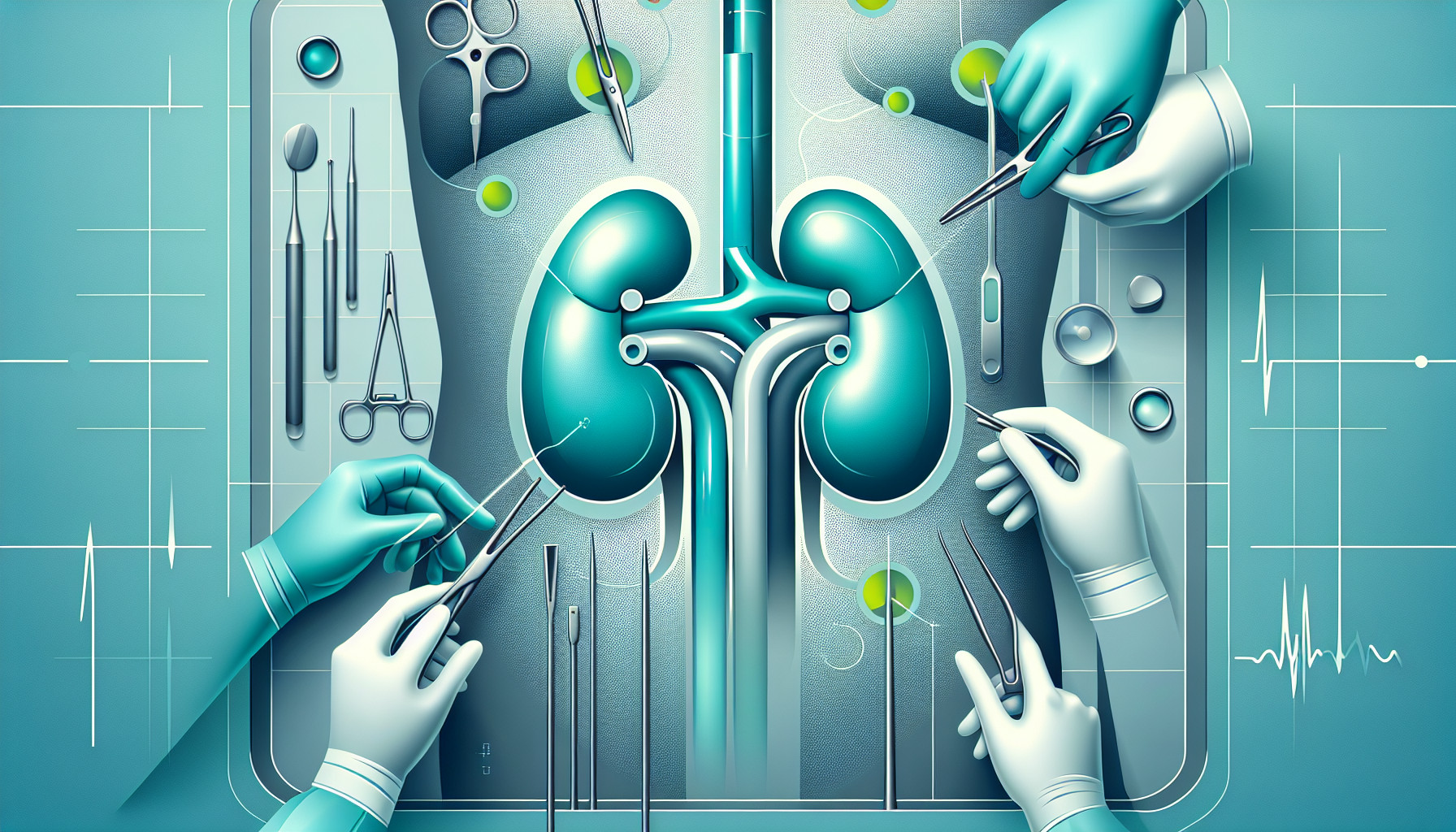Our Summary
This research paper is an update to a previous review and analysis of studies that looked at how physical activity and exercise programs can impact people who have received a kidney transplant. Those who have had a kidney transplant often have a higher risk of heart disease and changes in their physical fitness and body shape. It’s generally recommended that they stay physically active, and more evidence is emerging to support this.
In this updated review, the researchers analysed 23 studies, which involved over 1,000 kidney transplant recipients. The exercise programs in these studies usually lasted for 12 weeks and involved a mix of aerobic and resistance training, though the specifics varied widely.
The analysis found that these exercise programs significantly improved participants’ cardiovascular fitness, physical function, and levels of ‘good’ cholesterol (HDL). Some individual studies also found improvements in strength, bone health, muscle mass, and quality of life.
However, the researchers noted that all the studies they looked at had a moderate to high risk of bias. They concluded that physical activity and exercise can have several benefits for kidney transplant recipients, particularly in terms of reducing their risk of heart disease. But they also highlighted the need for more large-scale, long-term studies with detailed reporting of the exercise programs and how well participants stuck to them.
FAQs
- What were the main findings of the updated review on physical activity and kidney transplant recipients?
- How long did the exercise programs in the analysed studies typically last and what did they involve?
- What did the researchers conclude about the relationship between physical activity and heart disease risk in kidney transplant recipients?
Doctor’s Tip
Therefore, a helpful tip a doctor might give to a kidney transplant patient is to incorporate regular physical activity and exercise into their daily routine. This can help improve cardiovascular fitness, physical function, and overall health, while also reducing the risk of heart disease. It’s important to consult with a healthcare provider or a physical therapist to develop a safe and effective exercise program that is tailored to individual needs and abilities. Staying active and maintaining a healthy lifestyle can greatly benefit kidney transplant recipients in the long term.
Suitable For
Overall, kidney transplant recipients who are recommended for physical activity and exercise programs are those who are looking to improve their cardiovascular fitness, physical function, and overall health. These programs can be especially beneficial for individuals who are at a higher risk of heart disease and other related complications following a kidney transplant. It is important for healthcare providers to tailor exercise programs to the individual needs and capabilities of each patient to ensure they are safe and effective.
Timeline
Before kidney transplant:
- Patient undergoes evaluation and testing to determine eligibility for transplant
- Patient is placed on a waiting list for a compatible donor kidney
- Patient undergoes pre-transplant preparations, including medical tests and lifestyle changes
- Patient receives a donor kidney and undergoes the transplant surgery
After kidney transplant:
- Patient stays in the hospital for monitoring and recovery after surgery
- Patient takes immunosuppressant medications to prevent rejection of the new kidney
- Patient undergoes regular check-ups and monitoring to ensure the new kidney is functioning properly
- Patient may experience side effects from medications, such as increased risk of infection or diabetes
- Patient is recommended to stay physically active and may participate in exercise programs to improve cardiovascular fitness and overall health
What to Ask Your Doctor
Some questions a patient should ask their doctor about kidney transplant and physical activity/exercise programs include:
- Is it safe for me to participate in physical activity and exercise after receiving a kidney transplant?
- What specific types of physical activity and exercise do you recommend for kidney transplant recipients?
- How often should I be engaging in physical activity and exercise?
- Are there any restrictions or precautions I should be aware of when participating in physical activity and exercise?
- How can physical activity and exercise benefit my overall health and well-being after a kidney transplant?
- Are there any specific goals or milestones I should be aiming for in my physical activity and exercise routine?
- Can you refer me to a specialist or physical therapist who can help me develop a personalized exercise program?
- What signs or symptoms should I watch out for while exercising that may indicate a problem with my kidney transplant?
- How will you monitor my progress and adjust my exercise program as needed?
- Are there any resources or support groups available for kidney transplant recipients who are interested in physical activity and exercise?
Reference
Authors: Billany RE, Bishop NC, Castle EM, Graham-Brown MPM, Greenwood SA, Lightfoot CJ, Wilkinson TJ. Journal: Ren Fail. 2025 Dec;47(1):2480246. doi: 10.1080/0886022X.2025.2480246. Epub 2025 Mar 27. PMID: 40148080
